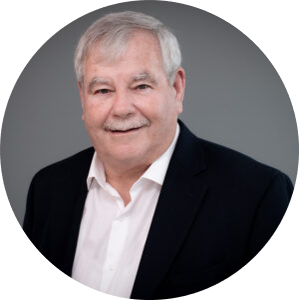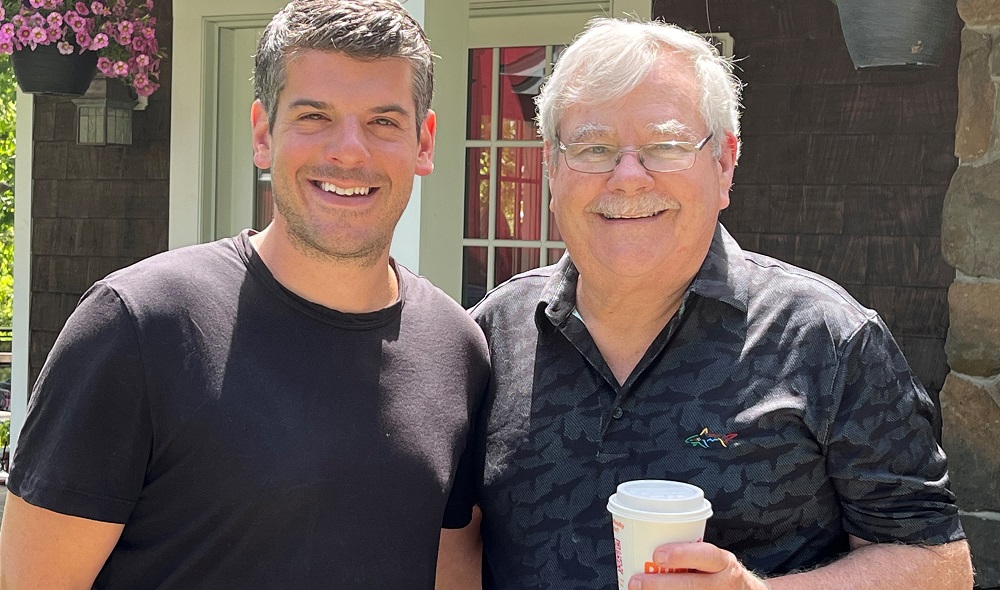Behind the Batteries: Jim Tarpey, Convergent’s Project Executive Talks Energy Storage

Jim Tarpey brings nearly 50 years of experience in the energy industry and decades of technical expertise to the Convergent team. Jim started his career as a Field Engineer with Orange and Rockland Utilities (now a part of Con Edison), where he went on to hold both mentorship and leadership roles. A Brockton, Massachusetts native, Jim knows his way around the Northeast and has deep expertise and relationships, particularly with municipal utilities in ISO-NE.
We caught up with Jim to learn more about his career, his role as a Project Executive, and what excited him about the future of energy.
How did you get your start in the energy industry?
I started my career as a Field Engineer for Orange and Rockland Utilities where I learned the power systems from the bottom up. From there I moved to other positions and learned different parts of the business. I moved into distribution system design and then into field operations where I was managing projects and linemen. At one point, I even managed the transportation department for four years, where my engineering and planning skills transformed the organization and touched many other departments. That also was my first venture into rate case testimony. After that, I was promoted and advanced in electrical engineering managerial positions to Director and then added substation operations and the control center to my responsibilities. During that time, I also got involved with the Institute of Electrical and Electronics Engineers (IEEE) and the Electric Power Research Institute (EPRI) with peers throughout North America drafting national standards and working on strategic industry committees.
In 2001, I was promoted to Vice President of Operations and was responsible for both gas and electric organizations with a workforce of 800 employees plus contractors. At the time, the gas system performance was a concern for the regulators, and they were skeptical about an electrical engineer taking over—but, if I’m being honest, by the time I left we had gained their confidence and had strategic plans in place to continue improvements. During that time, I also chaired the Northeast Gas Association and Society of Gas Lighting. Having the responsibility for both gas and electric systems meant that I never had summer or winters off, but it was a terrific experience migrating electric system advances and applying them to the gas system! In my spare time, I participated in and chaired both the Rockland Community College Foundation and the local YMCA Board.
A fun fact: in the 80s, I pioneered a process called cable rejuvenation, which is now used by utilities around the world to restore underground high voltage cables with deteriorated insulation without excavation and costly replacements!
You’ve been in the industry for an impressive amount of time, why did you decide to join Convergent?
As you know, I’ve been in the industry for almost 50 years—during that time, I learned a lot when it comes to developing strategies and having a vision. I’ve helped standardize systems and pioneered new solutions to old problems. While I could have retired and moved to Florida, I felt like I had too much knowledge not to be active in the industry. I want to pass on what I have learned to the next generation. Also, my grandchildren are in Brooklyn, and they continue to be an anchor.
What is something you wish more people knew about Convergent?
One of the reasons I have really enjoyed working at Convergent is that we have a lot of smart and dedicated people who know how to work together—we are not two men and a truck. We all want to create value and a product that will be reliable and dependable for our customers.
I think of Convergent as a “premium” product. People don’t always understand all the work that goes into it until they begin to experience the delivery of one of our battery energy storage systems or solar-plus-storage systems. Once we’ve delivered the energy storage system and its operational, our customers realize the value that we have added to their utility or business.
How do you like to spend your time outside of the office?
I used to enjoy playing golf until my back gave out. Now my joys are my granddaughters. Legoland is three miles from my house, and we’ve been there four times in the two years that it has been open. And, to combat inflation, I have expanded my garden by 40% this year—and I am known for the best tomatoes around!
A little-known fact about me: I was the #1 All-State Drummer my senior year of high school and the music colleges came after me. But because that industry is so competitive and I excelled at math, I wanted to learn how to apply those skills in the real world.
What is your favorite part of your role?
Continuing to pass my knowledge on to people at Convergent who are not engineers but who need to understand how these systems work. I like that I’ve been able to pass my experience on to the team.
In my previous role, I knew about 600 of my 800 employees by name and knew a lot about their families. I keep in contact with many and especially those who have continued to succeed due to my mentoring. Interpersonal relationships with co-workers and customers continue to be paramount to my role.
Where do you see the industry going in the next five years?
With the power system—before renewables and energy storage—that I grew up working with, it was most economical and reliable to locate generation in the city load centers. Then we moved power generation outside of the cities and built long transmission lines into the cities and then built more to improve reliability. Deregulation and Regional Transmission Organization (RTO) markets were established, creating the need for much more coordination between entities. I am all for renewables and I think they are extremely valuable, especially as it relates to the climate crisis. However, we are going to need a lot more instantaneous communication and technology to maintain reliability. As generation shifts away from fossil fuels, battery energy storage becomes the critical component of the network. Convergent’s patented PEAK IQ® energy storage intelligence uses the latest artificial intelligence (AI) and machine learning technologies to determine the optimal times to charge and discharge battery energy storage systems (standalone or paired with solar) based on customer load characteristics, utility rate tariffs, wholesale market pricing, grid peak times, weather forecasts, and other factors. PEAK IQ helps customers reduce and forecast their energy costs while decreasing their carbon footprints. Created and advanced by our data scientists, PEAK IQ is the tool that makes interfacing with an increasingly complex system a lot easier.
As we transition to more renewables, the industry must find more applications for energy storage to support those transitions and create opportunities. Energy storage may only have a few applications today that make it financially viable, but it will most certainly align with new opportunities that will be created to improve the grid’s reliability and resiliency. There is no question in my mind that we need energy storage desperately to make this transition and the industry and incentives need to accelerate the adoption of battery storage.
What would you say to someone who is on the fence about energy storage?
Utility engineers once rejected energy storage, but as it has become more economical, reliable, and operationally optimized, those engineers are becoming more convinced that it can be considered a utility system asset. However, I am still educating engineers who think that an energy storage system is just a battery. And we can do that, sure, but a battery storage system can be so much more. It is managed with software but once you know how to operate it, the battery becomes like a Swiss Army Knife in the electric system—it becomes a more valuable tool. Through conversations with engineers, I’ve been able to open up a lot of folks to applications that they never would have otherwise thought about.
What advice would you give to someone at the headwaters of their career?
It is important that you understand your customers and you understand their needs. I also really encouraged people to advance their education while continuing their careers and not to be afraid of challenges and getting their hands dirty. I have a lot of people today that thank me for my guidance and what it has done for their careers and their families. I like that and I continue to do that at Convergent.
Learn More About Utility- and Industrial-Scale Energy Storage With Convergent
If your utility or business is interested in reducing electricity costs, increasing sustainability, or improving reliability, Convergent can help. Convergent is accelerating the clean energy transition through AI-powered energy storage and has over a decade of expertise in financing, owning, and operating energy storage and solar-plus-storage systems that benefit our customers and the planet.
Ready to get started? Contact us today for a customized proposal.

Jim serves as Convergent’s Utility Project Executive and has worked with the company since 2012. Jim has nearly 50 years of expertise in engineering and operations in gas and electric systems, particularly within the utility sector.





